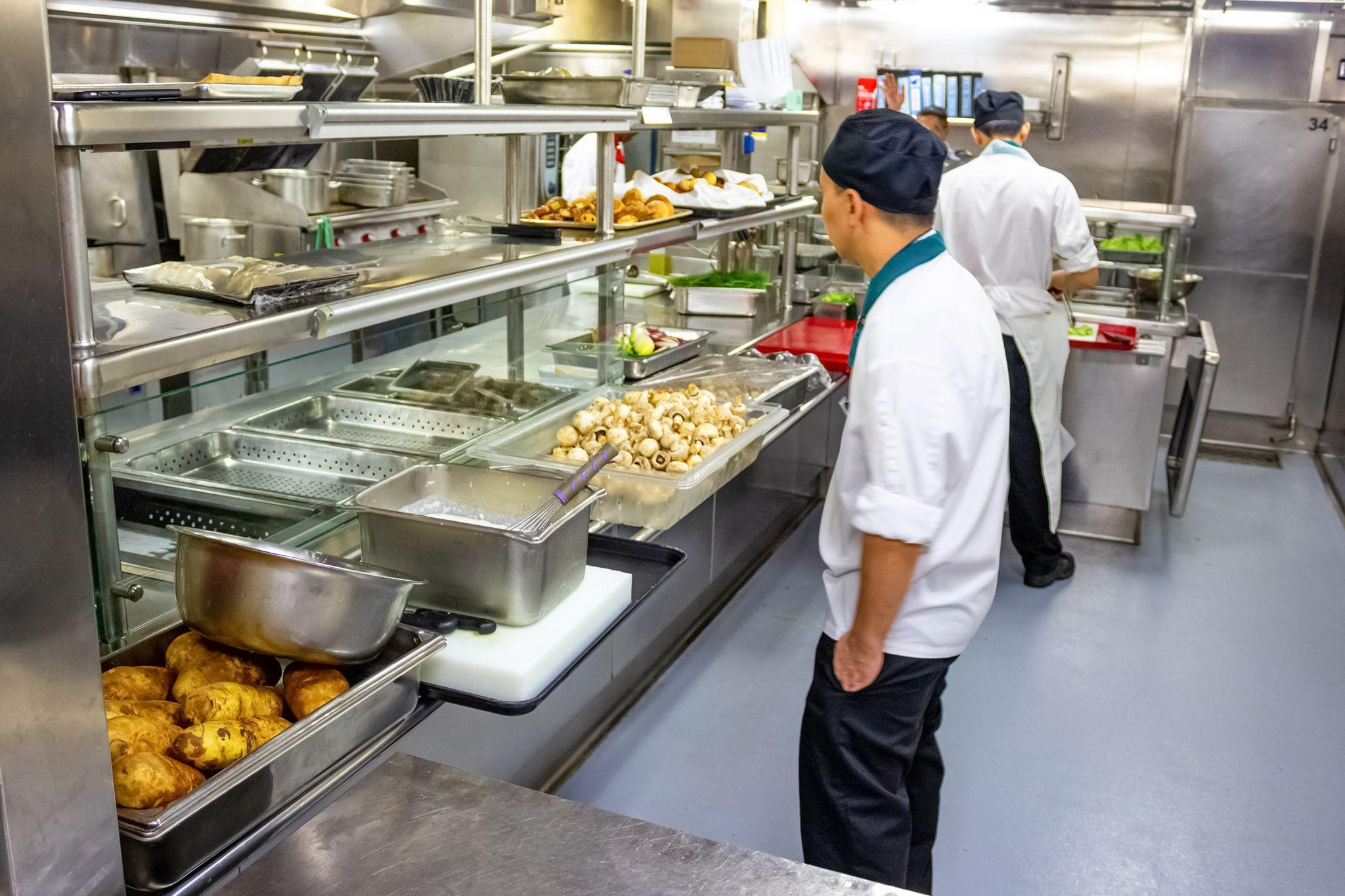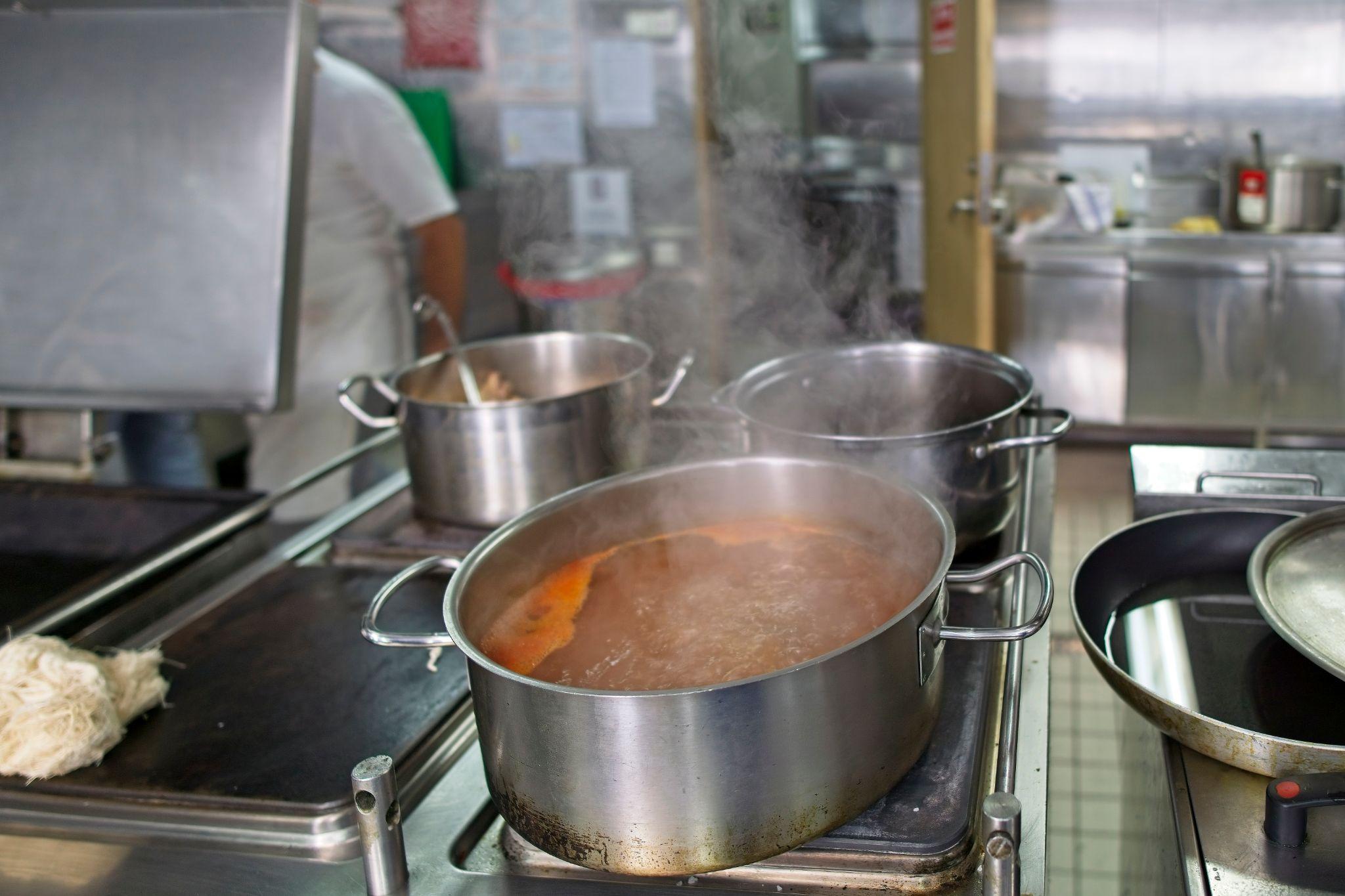
Blog
Potential Injuries Maritime Cooks and Ship Stewards Face
Posted in Maritime
Maritime workers are not just those who navigate the ship, handle the cargo, or pull the fishing nets. Also included as essential members of a ship’s crew are the ship stewards and cooks. Stewards and maritime cooks injured in the service of a vessel are provided with the same legal protections as other maritime workers.
What Do Vessel Cooks and Ship Stewards Do?
Some ships have a single cook, while others have a Ship Steward Department in charge of cooking, cleaning, and other housekeeping tasks. There may be both a Chief Cook and a Chief Steward on board, as well as several assistants, especially on passenger ships and large vessels.
A galley steward’s responsibilities include maintaining a clean ship, tending to passenger requests and waste management, and replenishing inventory while the ship’s cook plans and prepares the menu and meals. Cooks and stewards directly contribute to the function or mission of their vessel and enjoy the same legal rights to maintenance and cure or protection under the Jones Act as the other crew members employed to work onboard.
While they face the same risks of vessel accidents—which are common to all maritime workers, including collisions, sinking, fires, and shifting cargo—cook’s injuries can also be caused or worsened by dangers specific to the galley or ship kitchen. Sharp knives, boiling hot liquids, and electrical equipment used for food prep all present a greater risk in the unsteady and wet environment found at sea. Even intoxicated or angry passengers can pose a threat to the stewards that strive to keep them happy.
The Most Common Kitchen Accidents at Sea
Vessel owners have a duty to provide a safe working environment, a seaworthy vessel, and proper training to their crew to help prevent injuries and deaths at sea. Despite these responsibilities, there are still many accidents that happen in the galley or performing the tasks of essential ship upkeep. Cooks and stewards may face:
- Unsafe flooring or slippery conditions
- Electrical galley equipment that malfunctions
- Hot liquids and surfaces without protective shields
- Lack of protective clothing and safety gear
- Unsanitary conditions and exposure to biological hazards
- Falling equipment, sharp objects, or stored food stuffs
- Ice buildup or improper defrosting procedures in freezers
- Overwork and fatigue resulting from insufficient crew
- Repetitive use and lifting injuries
- Combative passengers or crew members
- Improperly trained crew members resulting in safety hazards
Common Injuries Sustained by Ship Cooks and Stewards
Ship’s stewards and cooks face the same risks of drowning, hypothermia, and falling overboard as any other maritime worker. Slip and fall accidents are common, sometimes resulting from improper training or a lack of safety equipment. Electrocution, serious lacerations, and crush accidents happen all too often.
Maritime workers are responsible to follow The Code of Safe Working Practice for Merchant Seamen and, sometimes, are partly responsible for their accident, but the greater burden is on the vessel owner to provide training on the code and to enforce safe working practices. If there is any negligence on the part of the ship owner, vessel cooks, and stewards have the same rights under the Jones Act to fair compensation for serious injuries like these:
- Burns, including chemical and electrical burns
- Smoke inhalation or exposure to toxic fumes
- Wounds from knives or galley equipment
- Loss of a finger, hand, or limb
- Serious illness from exposure to bacteria, mold, or toxins
- Head, neck, and back injuries
- Slip and fall injuries causing broken bones
- Crushing, drowning, or other death at sea
Protecting Ship Stewards and Cooks Injured Sea
Injured ship cooks and stewards may be eligible for maintenance and cure, as well as additional compensation under the Jones Act or other maritime laws. At a minimum, these should cover medical and living expenses until you are able to return to work.
If the ship owner provided improper equipment or otherwise failed in their duty to provide a safe working environment and seaworthy vessel, you may be eligible for additional compensation, including long-term disability, death benefits, and lost wages or earning potential. It can benefit you to speak to an experienced team of maritime attorneys to find out if you have a case.
Some examples of situations that might qualify you for these benefits include:
- Operating a vessel that is not fit for its intended purpose
- A vessel in navigation that is unseaworthy for a variety of reasons
- Failing equipment that is not properly maintained and causes injury
- Other employees who were negligent and contributed to the accident
- Failure to provide proper medical care in a timely manner
- Crewmembers who are inadequately trained or fatigued from overwork
Charting a Course After Your Accident
You may still be reeling from your injuries when an insurance adjustor or company doctor asks you to sign away your rights to fair and full compensation. The safest course after an accident at sea is to get your own legal advice and guidance before you agree that your needs have been met by basic maintenance and cure or a small settlement.
For more than nine decades, our team has represented injured maritime workers and recovered hundreds of millions of dollars for our clients. Ship stewards, cooks, or anyone injured in the service of a vessel can schedule a free and confidential case review with the trusted maritime legal team of Schechter, Shaffer & Harris at Maintenance and Cure.















